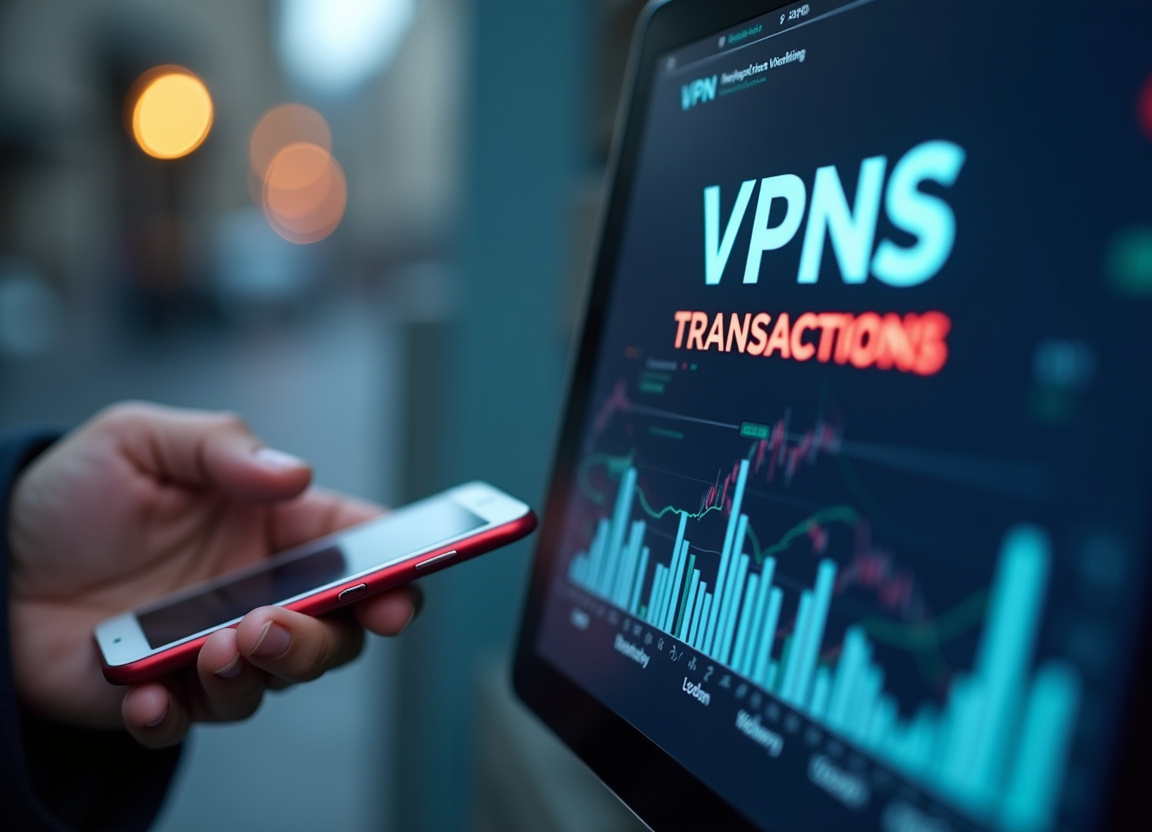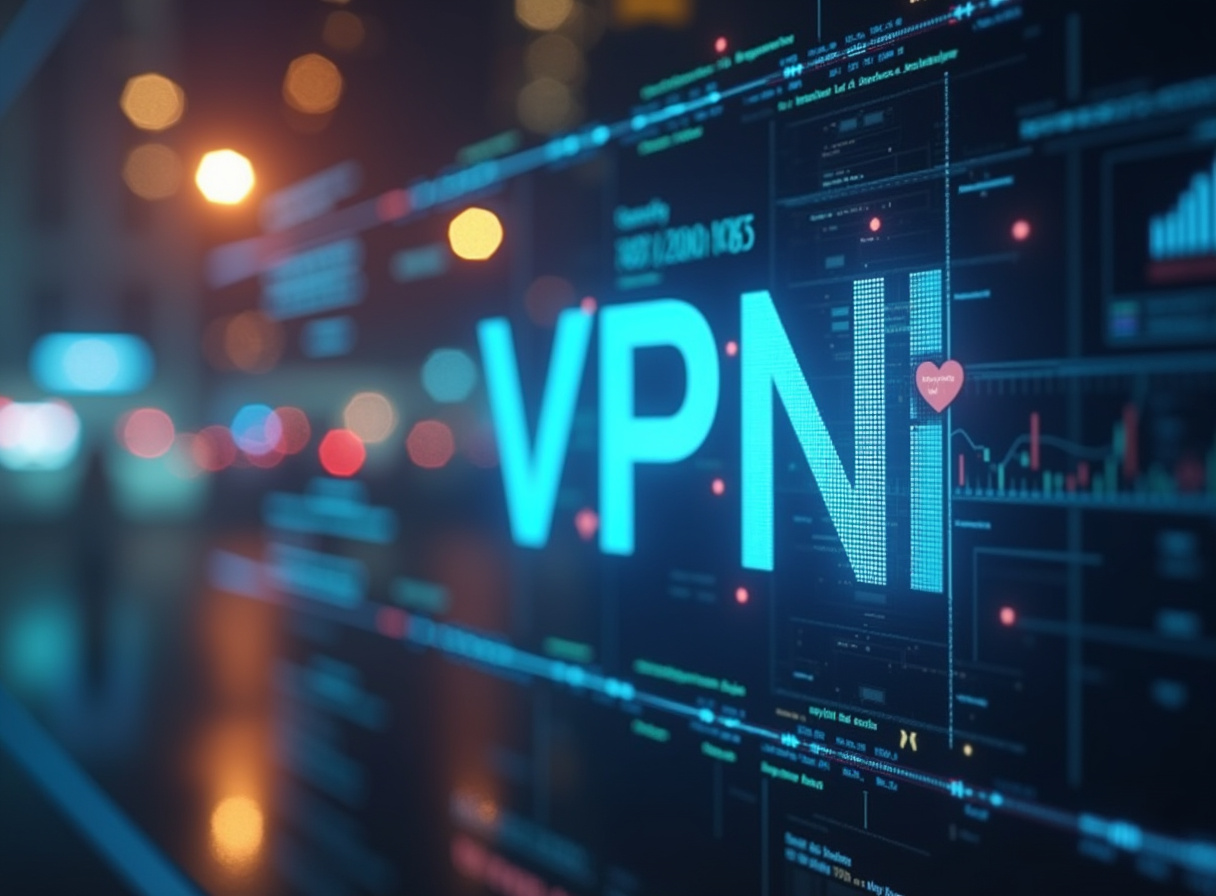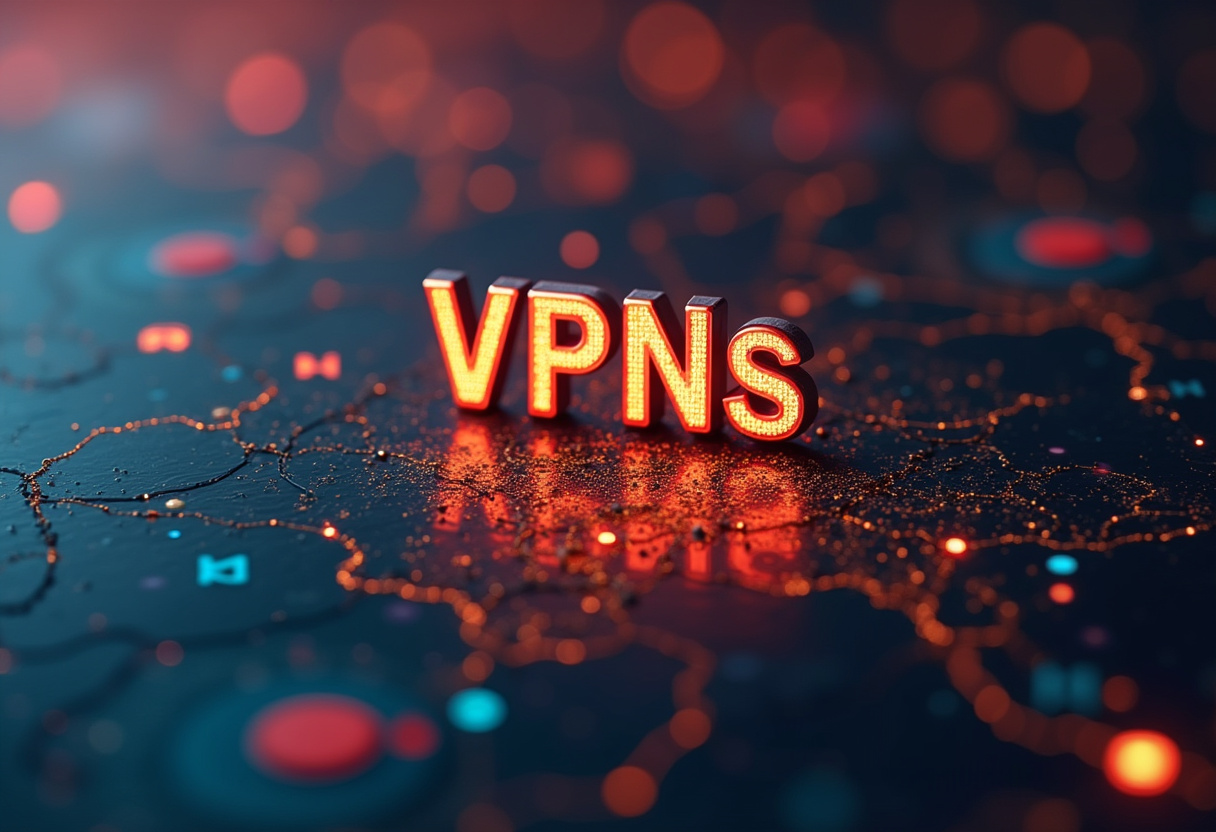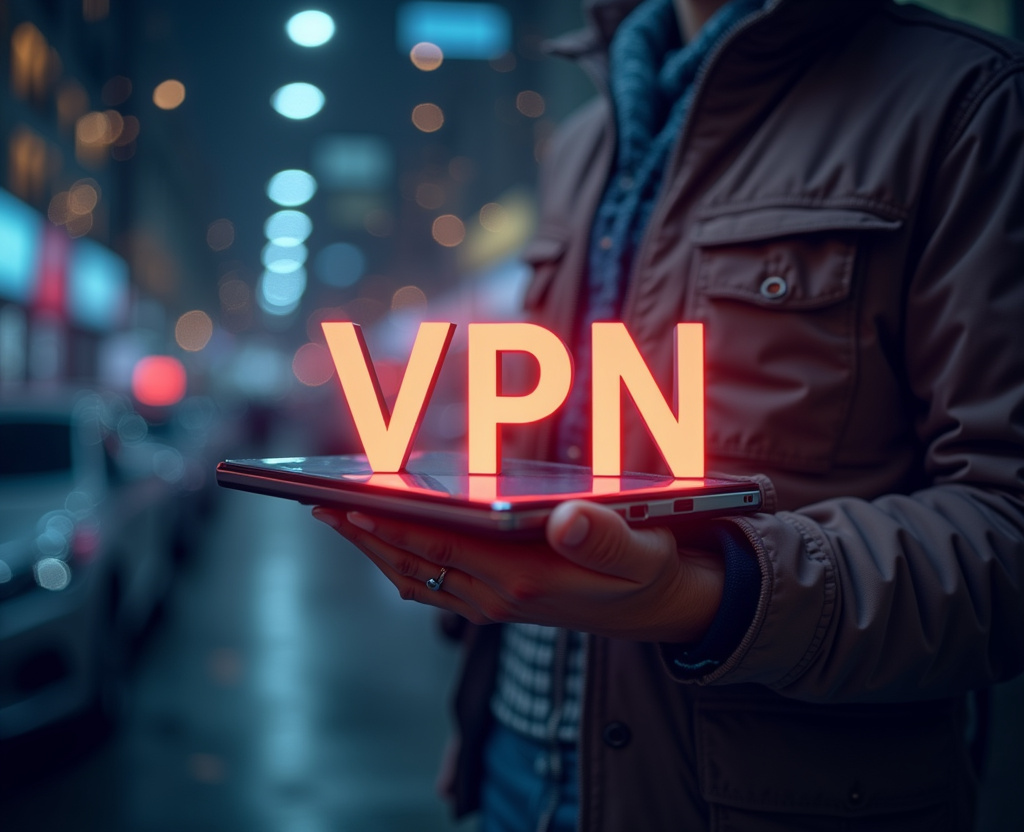VPNs for Digital Wallets: Securing Financial Transactions

Table of Contents
- The Imperative of VPNs in Protecting Digital Wallet Transactions and User Data
- How VPNs Fortify Digital Wallets: Encryption, IP Masking, and Secure Connections
- Selecting the Right VPN for Digital Wallets: Key Features and Considerations
- VPN Integration with Subscription Services: Enhancing Security and Privacy for Users
The Imperative of VPNs in Protecting Digital Wallet Transactions and User Data
In an era defined by digital connectivity and financial fluidity, digital wallets have emerged as indispensable tools for managing and executing financial transactions. These virtual repositories offer unparalleled convenience, allowing users to pay bills, shop online, and transfer funds with remarkable ease. However, this convenience is intertwined with inherent security risks.
Digital wallets, handling sensitive financial data, are prime targets for cyberattacks, enticing malicious actors seeking unauthorized access, fund theft, and personal information compromise. Consequently, robust security measures are not simply recommended, but are absolutely essential. It is in this critical context that the importance of Virtual Private Networks (VPNs) for digital wallets becomes profoundly evident.
A VPN acts as a formidable protective shield, encrypting internet traffic and masking IP addresses, thereby significantly enhancing financial security and diligently safeguarding sensitive data during those all-important online transactions. This introduction sets the stage for a deep dive into how VPNs can fortify your digital wallet security strategy. The core function of a VPN is to create a secure, encrypted tunnel for data transmission.
Think of it as constructing a private, fortified road through a public highway, ensuring that the cargo (your data) arrives safely and unseen. This tunnel effectively cloaks all internet activity, rendering it unreadable to unauthorized third parties, including lurking hackers, prying government surveillance agencies, and even nosy internet service providers (ISPs) monitoring your online habits. When you utilize a digital wallet without the protective embrace of a VPN, your internet connection is potentially vulnerable, akin to leaving your front door unlocked in a high-crime neighborhood.
Your IP address, serving as your digital home address; your geographic location, pinpointing your physical whereabouts; and your browsing activity, detailing your online behavior, can all be exposed, leaving you susceptible to targeted attacks specifically designed to exploit your vulnerabilities. By employing a VPN, you actively conceal your actual IP address, replacing it with one provided by the VPN server, much like using a post office box instead of your home address. This crucial step makes it considerably more difficult, bordering on impossible in some cases, for cybercriminals to trace your online activity back to your physical location or, more importantly, your true digital identity.
Furthermore, the robust encryption protocols employed by a VPN guarantee that even if your data is somehow intercepted during transmission, it remains unreadable gibberish to the interceptor. This is particularly critical when conducting financial transactions through digital wallets, as it proactively protects your sensitive account credentials (usernames and passwords), intricate transaction details (amounts, recipients, dates), and other confidential personal information from falling into the clutches of malicious actors who could exploit it for nefarious purposes. Choosing the right VPN for digital wallet security is a complex task, one that requires careful consideration and informed decision-making.
Not all VPNs are created equal, and some may offer inadequate security features, potentially creating a false sense of security where none truly exists. Worryingly, some VPN providers may even compromise your privacy, collecting and selling your browsing data to third parties, thus negating the very purpose for which you sought a VPN in the first place. Therefore, a comprehensive evaluation is vital.
Look for a VPN provider that boasts strong, industry-standard encryption protocols, such as Advanced Encryption Standard (AES) with a 256-bit key, considered virtually unbreakable by modern computing power. Insist on a strict "no-logs" policy, a steadfast commitment from the VPN provider ensuring that your online activity is never tracked, stored, or shared with anyone, guaranteeing complete anonymity. Finally, seek a VPN with a wide network of strategically located servers across the globe, allowing you the flexibility to choose server locations that optimize your connection speed and circumvent geographical restrictions.
How VPNs Fortify Digital Wallets: Encryption, IP Masking, and Secure Connections
The significance of financial security in the digital age cannot be overstated; it’s a cornerstone of personal and economic stability as we navigate an increasingly online world. As digital wallets become integrated more deeply into our daily routines – managing everything from routine grocery purchases to substantial investment transactions – the potential consequences stemming from security breaches become exponentially more severe. Losses are no longer limited to small-scale individual monetary theft; we now face the specter of widespread data breaches capable of affecting millions of users simultaneously, resulting in devastating financial and reputational damage.
Protecting user data is no longer a mere suggestion but a fundamental imperative, and VPNs elegantly offer a crucial and multi-faceted layer of defense in achieving this critical goal. This protection extends far beyond simply hiding your IP address; it's about safeguarding your entire digital identity and ensuring the confidentiality of your financial activities. One of the key benefits of using a VPN in conjunction with a digital wallet involves the enhanced protection of extremely sensitive financial data during active transactions.
When you initiate a payment through a digital wallet, a complex stream of transaction details, including your linked credit card numbers, associated bank account information, and key personal identification data, are transmitted across the vast expanse of the internet. Without the protective intervention of a VPN, this highly valuable data stream is intrinsically vulnerable to interception attempts executed by malicious hackers employing sophisticated techniques such as “man-in-the-middle” attacks, where they discreetly eavesdrop on the communication, or insidious packet sniffing, where they capture and analyze network data packets in search of sensitive information. A VPN effectively throws a cloak of invisibility over this data by deploying powerful encryption algorithms, rendering the intercepted data an unreadable jumble of meaningless characters to anyone lacking the correct decryption key.
This encryption safeguards your financial lifeline, ensuring that even if a cybercriminal manages to intercept your data, they won't be able to decipher its contents. This level of protection achieves paramount importance when utilizing public Wi-Fi networks, which are, quite frankly, notorious for their inherent insecurity. Public Wi-Fi hotspots, readily available at coffee shops, airports, and hotels, frequently serve as tempting honey pots for cybercriminals actively seeking to steal data transmitted over the network.
These networks often lack basic security protocols, making them easy targets for eavesdropping and data theft. By connecting to a trusted VPN server before even thinking about accessing your digital wallet on a public Wi-Fi network, you establish a secure and encrypted tunnel for your traffic, ensuring that your valuable data remains shielded from prying eyes, even if the underlying network itself is compromised. Besides encryption and IP masking, a VPN offers an essential additional layer of anonymity, further minimizing the risk of targeted attacks specifically aimed at exploiting your vulnerabilities.
By effectively masking your true IP address, a VPN makes it significantly more challenging, and in many cases practically impossible, for hackers to accurately identify and meticulously track your online activity. This enhanced anonymity becomes exceptionally valuable in environments where intrusive internet surveillance reigns supreme, safeguarding your financial privacy from unwarranted scrutiny. Beyond the core protections of encryption and IP masking, a VPN contributes to preventative financial security by guarding against insidious phishing attacks, a prevalent and increasingly sophisticated method favored by cybercriminals to cunningly steal login credentials and sensitive financial information.
By strategically routing your internet traffic through a security-hardened VPN server, you gain a proactive shield against malicious websites and prevent yourself from accidentally entering your critical credentials on convincingly crafted fake login pages designed to mimic legitimate financial institutions. Essentially, the conscious adoption of a secure VPN for your digital wallets clearly illustrates a proactive and responsible approach to cybersecurity in an increasingly dangerous and unpredictable online environment.
Selecting the Right VPN for Digital Wallets: Key Features and Considerations
Transaction integrity stands as a foundational pillar for the reliable and trustworthy utilization of digital wallets; it's the bedrock upon which user confidence and the overall stability of the digital economy are built. In essence, transaction integrity guarantees that every single financial exchange is meticulously executed with unwavering accuracy, unwavering completeness, and crucially, without any unauthorized modifications or malicious interference. A VPN, in its role as a vigilant guardian, is an indispensable tool in preserving this critical integrity, actively offering robust protection against various malicious interventions that could potentially compromise, corrupt, or otherwise invalidate the security and veracity of financial transactions.
Neglecting transaction integrity is akin to building a house on shifting sands – the entire structure is vulnerable to collapse at any moment. The potential avenues for jeopardizing the inherent integrity of a financial transaction are numerous and often deceptively complex. One significant threat stems from the possibility of hackers actively attempting to surreptitiously intercept and nefariously alter critical transaction details, which could include, for example, the recipient's sensitive bank account number or even the precise amount of money being transferred.
Such an alteration, even seemingly minor, could have catastrophic consequences, leading to misdirected funds, financial losses, and significant disruption. Furthermore, bad actors might attempt to inject malicious, undetectable code directly into the transaction process itself, subtly redirecting funds to rogue accounts meticulously controlled by them, essentially diverting your money into their pockets without your knowledge or immediate detection. A further threat vector involves the potential for launching a debilitating Denial-of-Service (DoS) attack, an overwhelming surge of artificial traffic designed to deliberately disrupt or completely halt the transaction process altogether.
These attacks can cripple payment systems, causing widespread chaos and eroding user trust. A carefully selected and meticulously configured VPN can effectively mitigate these diverse risks by constructing a formidable and tamper-proof communication channel for your sensitive financial data. The robust, military-grade encryption protocols faithfully employed by the VPN ensure that transaction data remains completely impervious to alteration during transit.
Any malicious attempt, however sophisticated, to modify the encapsulated data would render it instantly unreadable and inherently invalid, effectively preventing the compromised transaction from successfully completing and causing harm. This robust line of defense proves especially vital for high-value transactions, such as large transfers or international payments, or any transaction that inevitably involves the exchange of exceptionally sensitive financial information that needs protection. Beyond simply safeguarding against malicious modifications, a VPN plays a important role in preventing transaction fraud by effectively masking your legitimate IP address and hiding your true geographical location.
This crucial step makes it significantly more difficult for cybercriminals to accurately identify and subsequently target you with cleverly crafted phishing scams, social engineering attacks, or any other form of fraudulent online activities that prey on exposed users vulnerability. By strategically routing your valuable internet traffic through a secure, remote server located in a different geographical location, you creatively construct a virtual barrier carefully designed to protect yourself against a wide spectrum of potential threats. This obfuscation of your digital fingerprint makes you a significantly less attractive target for would-be fraudsters.
The crucial importance of meticulously maintaining transaction integrity extends far beyond the immediate interests of individual users. It also serves as a foundational pillar for the long-term stability, unwavering reliability, and overall trustworthiness of the entire digital payment and digital wallet ecosystem. When users can unequivocally trust, with complete confidence, that their valued transactions are inherently secure, verifiably tamper-proof, and executed without any undue risk, they are far more likely to confidently adopt and actively utilize digital wallets as their preferred method for financial transactions, which, in turn, inevitably drives technological innovation, promotes broad economic growth, and accelerates the global transition to a increasingly cashless society.
Therefore, the proactive and responsible implementation of an effective VPN as a security measure represents a seemingly simple, yet strategically significant, way to dramatically bolster transaction integrity, defend your assets against emerging cyber threats,
VPN Integration with Subscription Services: Enhancing Security and Privacy for Users
User data protection is a paramount concern in the digital age, particularly when dealing with sensitive financial information stored within digital wallets. VPNs play a critical role in safeguarding this data, offering a multi-layered approach to security that protects users from a wide range of threats. The value of personal data has skyrocketed, making it a prime target for cybercriminals seeking financial gain or malicious intent.
Protecting this data is not just about preventing financial loss; it's about preserving individual privacy and maintaining trust in digital ecosystems. The consequences of data breaches can be far-reaching, including identity theft, reputational damage, and emotional distress. One of the primary ways VPNs protect user data is through encryption.
When you connect to a VPN server, all of your internet traffic is encrypted, making it unreadable to anyone who might be monitoring your connection. This is particularly important when using public Wi-Fi networks, which are often unsecured and vulnerable to eavesdropping. Without encryption, your data can be easily intercepted by hackers using readily available tools.
VPNs use strong encryption algorithms, such as AES-256, to scramble your data, making it virtually impossible to decipher. This ensures that your sensitive information, including login credentials, financial details, and personal communications, remains private and secure. In addition to encryption, VPNs also mask your IP address, which is a unique identifier that can be used to track your online activity and determine your location.
By connecting to a VPN server, your IP address is replaced with one from the VPN server, making it much more difficult for websites, advertisers, and other third parties to track you. This added layer of anonymity can help protect you from targeted advertising, price discrimination, and other forms of online surveillance. A reputable VPN provider will have a strict no-logs policy, meaning that they do not track or store any information about your online activity.
This ensures that your privacy is protected even from the VPN provider itself. However, it is important to choose a VPN provider carefully, as some may log your data and sell it to third parties. Look for a VPN provider that has been independently audited to verify their no-logs policy.
Furthermore, VPNs can help protect you from phishing attacks, which are a common way for cybercriminals to steal your login credentials and financial information. VPNs can block access to known phishing websites, preventing you from accidentally entering your credentials on a fake login page. Some VPNs also offer additional security features, such as malware protection and ad blocking, which can further enhance your online security.
By blocking malicious websites and advertisements, VPNs can reduce your risk of infection with malware or other harmful software. Overall, VPNs provide a comprehensive approach to user data protection, offering encryption, IP address masking, and other security features that protect you from a wide range of online threats. By using a VPN, you can significantly reduce your risk of data breaches, identity theft, and other forms of cybercrime.
The adoption of a VPN demonstrates a proactive commitment to protecting your personal and financial information in an increasingly vulnerable digital landscape. It is an investment in your online security and peace of mind. Choosing a VPN that offers robust security features, a strict no-logs policy, and a reliable track record is essential for ensuring the protection of your user data.
Regular updates and security audits are also important factors to consider when selecting a VPN provider. By taking these steps, you can significantly enhance the security of your digital wallet and protect your sensitive information from falling into the wrong hands. User data protection is not just a technical issue; it is a fundamental right.
By using a VPN, you are taking control of your online privacy and security, and ensuring that your data remains protected.
The integration of a VPN for payments represents a proactive and increasingly essential strategy for securing financial transactions in today's interconnected digital landscape. The convenience and ubiquity of online payment systems have also created new vulnerabilities and opportunities for cybercriminals to exploit. A VPN acts as a crucial shield, protecting sensitive payment data from interception, theft, and manipulation, ensuring both transaction integrity and user peace of mind.
It's no longer enough to simply rely on the security measures implemented by payment processors or financial institutions; individuals must take proactive steps to protect their own data and financial assets. One of the most significant benefits of using a VPN for payments is the added layer of encryption it provides. When you make an online payment, your credit card information, bank account details, and other sensitive data are transmitted over the internet.
Without encryption, this data can be intercepted by hackers using various techniques, such as man-in-the-middle attacks or packet sniffing. A VPN encrypts your internet traffic, making it unreadable to anyone who might be monitoring your connection. This ensures that your payment data remains private and secure, even if you are using a public Wi-Fi network or an unsecured connection.
In addition to encryption, a VPN also masks your IP address, which can be used to track your location and identify you. This anonymity can help protect you from targeted advertising, price discrimination, and other forms of online surveillance. It can also make it more difficult for cybercriminals to target you with phishing scams or other fraudulent activities.
By masking your IP address, a VPN can help protect your privacy and security when making online payments. VPNs can also help you bypass geographical restrictions and access payment systems that may be blocked in certain countries. This can be particularly useful for travelers or individuals who need to make payments to or from countries with restrictive internet policies.
However, it is important to use this functionality responsibly and to comply with all applicable laws and regulations. It is also important to choose a VPN provider that has a strict no-logs policy, meaning that they do not track or
Stay Updated
Get the latest VPN news, tips, and exclusive deals to your inbox.




